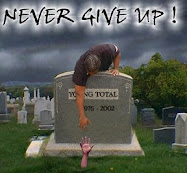
 Sen. Edward M. Kennedy, longtime Democratic senator and the patriarch of the Kennedy political family, has died after a lengthy battle with brain cancer.
Sen. Edward M. Kennedy, longtime Democratic senator and the patriarch of the Kennedy political family, has died after a lengthy battle with brain cancer.The Kennedy family released a statement early Wednesday morning saying, "Edward M. Kennedy – the husband, father, grandfather, brother and uncle we loved so deeply – died late Tuesday night at home in Hyannis Port. We've lost the irreplaceable center of our family and joyous light in our lives, but the inspiration of his faith, optimism, and perseverance will live on in our hearts forever. We thank everyone who gave him care and support over this last year, and everyone who stood with him for so many years in his tireless march for progress toward justice, fairness and opportunity for all. He loved this country and devoted his life to serving it. He always believed that our best days were still ahead, but it's hard to imagine any of them without him."
Related: Edward Kennedy Tributes: The President, Former Presidents, Biggies of Both Political Parties in Their Own Words
In recent weeks, Kennedy had received the Presidential Medal of Freedom from President Obama, and his sister, Eunice Kennedy Shriver, died. News came last week that the senator had sent a letter to the governor of Massachusetts, asking that he work to change the state's laws of succession to fill his Senate seat quickly through a direct appointment, rather than through a lengthier special election process. Kennedy's letter, as well as his absence from the White House Medal of Free
Democrats and Republicans alike had voiced their regret this year that Sen. Kennedy had not been in Washington to shepherd health care reform through the Senate. Before he died, Kennedy called health care reform the cause of his life. Sen. Judd Gregg (R-N.H.) called Kennedy "the consummate legislator," while Sen. John McCain (R-Ariz.) described him as a reliable partner on important issues. "He always kept his word, and that is far less common around here than a lot of people think," McCain told Politics Daily earlier this summer, speaking of Kennedy's legislative style. "We just sat down together and worked out a proposal. He didn't start it; I didn't start it. We just sat down and said OK, here's what we want to achieve -- what do we have to do?" McCain said.
Public figures from across the political spectrum reacted with sadness to the senator's passing. Sen. Orin Hatch (R-Utah), one of Kennedy's closest friends, said, "Today America lost a great elder statesman, a committed public servant and a leader in the Senate, and I lost a treasured friend." Former First Lady Nancy Reagan released a statement calling Kennedy "a dear friend," while Senate Majority Leader Harry Reid said, "It was the thrill of my lifetime to work with Ted Kennedy." Reid called Kennedy "a friend, the model of public service and an American icon," and added, "The liberal lion's mighty roar may now fall silent, but his dream shall never die."
President Obama released a statement at 4:30 a.m. Wednesday morning, saying in part, "Michelle and I were heartbroken to learn this morning of the death of our dear friend, Senator Ted Kennedy," he said. "I valued his wise counsel in the Senate, where, regardless of the swirl of events, he always had time for a new colleague. I cherished his confidence and momentous support in my race for the Presidency. And even as he waged a valiant struggle with a mortal illness, I've profited as President from his encouragement and wisdom."
Kennedy served in the United States Senate for 47 years after filling the seat of his older brother, John F. Kennedy, after JFK was elected president. Edward Kennedy became the patriarch of his large family after the untimely deaths of his three brothers Joe, Jack and Robert Kennedy.
Delivering the eulogy for Robert Kennedy in 1968, Kennedy said, "My brother need not be idealized or enlarged in death beyond what he was in life, to be remembered as a good and decent man, who saw wrong and tried to right it, saw suffering and tried to heal it, saw war and tried to stop it. Those of us who loved him and who take him to his rest today, pray that what he was to us and what he wished for others will someday come to pass for all the world."
Sen. Edward Kennedy was 77.

Edward Kennedy's Cause - Health Care Reform




























